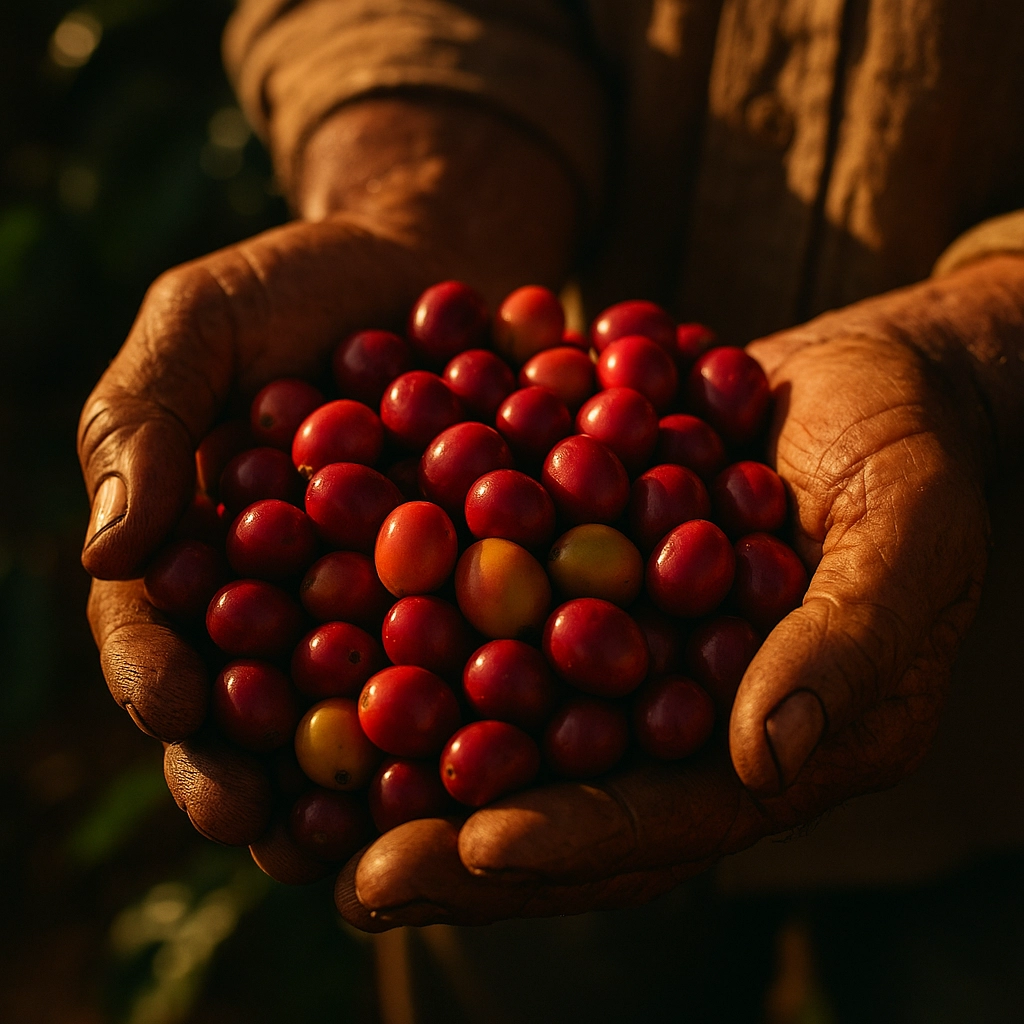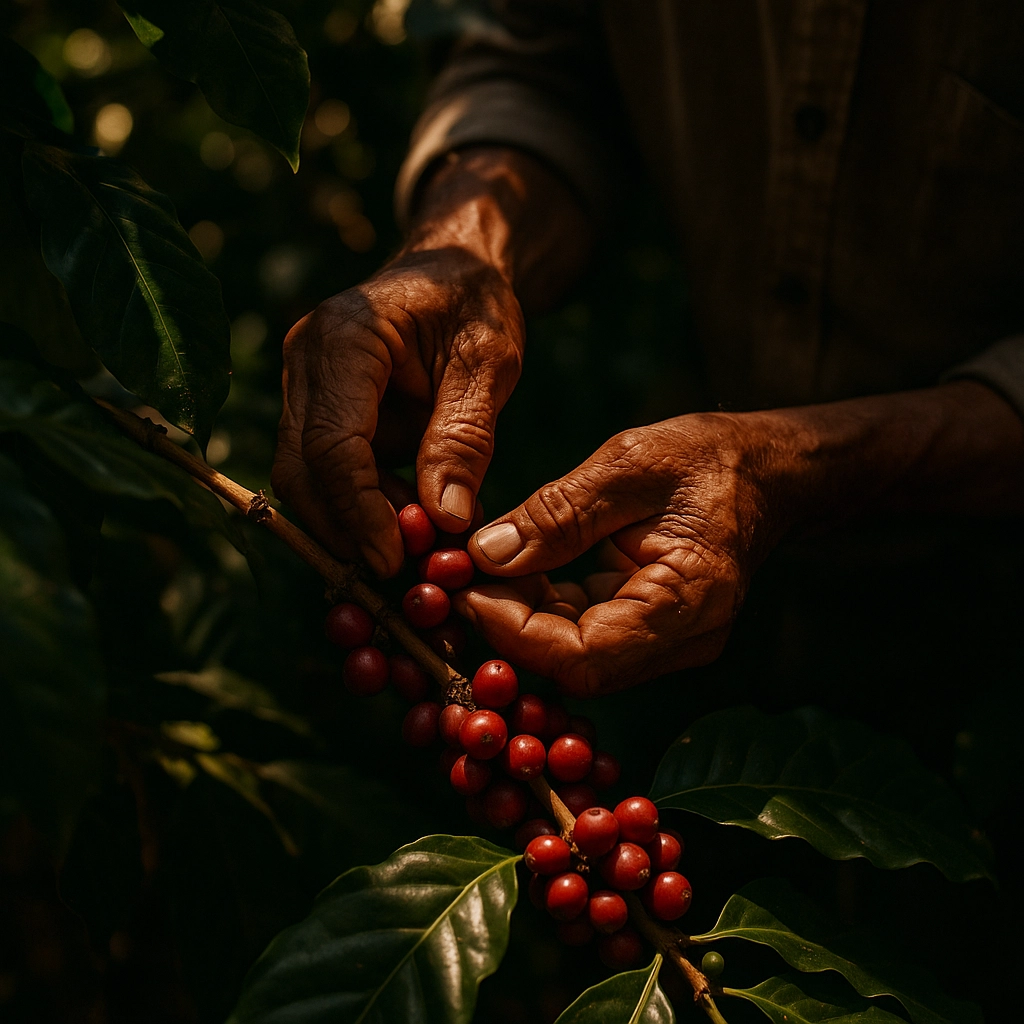Gone are the days when choosing ethical coffee meant sacrificing that perfect morning indulgence. Today's coffee lovers want it all: rich, complex flavors that make every sip feel like a luxury experience, paired with the peace of mind that comes from knowing their purchase supports farmers, communities, and the planet.
This isn't just wishful thinking. It's a reality that forward-thinking coffee companies are delivering every day, proving that sustainable sourcing and premium flavor aren't just compatible: they're synergistic.
The flavor advantage of ethical sourcing
Here's something that might surprise you: sustainably sourced coffee often tastes better than conventionally produced alternatives. When coffee farms prioritize environmental stewardship and fair labor practices, they typically focus on quality over quantity, resulting in beans with more complex, nuanced flavor profiles.
Sustainable farming practices like shade-growing, organic cultivation, and careful harvesting timing allow coffee plants to develop their full flavor potential. These methods produce beans with richer aromatics, better acidity balance, and more distinctive terroir characteristics: the very qualities that coffee enthusiasts prize most.

Think about it from the farmer's perspective. When they're paid fair wages and have stable, long-term relationships with buyers, they can invest time and resources into perfecting their craft. They can afford to hand-pick only the ripest cherries, process them with care, and focus on continuous quality improvements rather than simply maximizing yield.
This attention to detail translates directly into your cup. Single-origin beans from sustainably managed farms often showcase unique flavor notes that reflect their specific growing conditions: whether that's the bright citrus notes of Ethiopian highlands or the chocolate undertones of Central American mountain slopes.
Building relationships that enhance quality
The secret to sustainable indulgence lies in partnerships. The best coffee companies don't just buy beans; they build lasting relationships with farming communities. These partnerships create a virtuous cycle where everyone benefits.
When coffee roasters work directly with farmers or cooperatives, they can provide feedback about flavor preferences, share expertise about processing techniques, and even invest in infrastructure improvements. This collaborative approach leads to continuous quality enhancements while ensuring farmers receive fair compensation for their premium products.
Direct trade relationships also provide transparency that conscious consumers increasingly demand. You're not just buying coffee; you're supporting specific farmers whose stories you can learn about, whose challenges you understand, and whose successes you can celebrate.
The premium positioning of purpose
Modern consumers, especially millennials and Gen Z, view sustainability as a marker of quality rather than a compromise. They're willing to pay more for products that align with their values, but they expect those products to deliver exceptional experiences.
This shift has created an opportunity for coffee brands to position ethical sourcing as a premium feature rather than a burden. When sustainability is presented as part of what makes a coffee special: along with its flavor profile, origin story, and brewing recommendations: it enhances rather than detracts from the luxury positioning.

The most successful sustainable coffee brands understand this dynamic. They don't apologize for higher prices; they confidently explain the value proposition. They help customers understand how ethical sourcing contributes to flavor quality, community development, and environmental protection, making every purchase feel meaningful and worthwhile.
Innovation through sustainability
Sustainable practices often drive innovation that benefits everyone. Consider the growing trend of experimental processing methods at origin farms. Techniques like honey processing, anaerobic fermentation, and extended drying create unique flavor profiles while often using fewer resources than traditional methods.
These innovations emerge from sustainable farms partly because they have the stability and long-term thinking necessary for experimentation. Farms operating under fair trade relationships can afford to take risks, try new approaches, and develop proprietary techniques that create distinctive, premium products.
The specialty coffee industry's focus on traceability has also spurred technological innovations. Blockchain tracking, direct communication platforms between farmers and roasters, and sophisticated quality scoring systems all emerged from the desire to create more transparent, sustainable supply chains.
Meeting the conscious consumer
Today's coffee drinkers want more than just caffeine and flavor: they want connection and purpose. They want to know their morning ritual contributes to something positive in the world. This desire creates an opportunity for coffee companies to build deeper relationships with customers through storytelling and education.
Successful sustainable coffee brands excel at communication. They share farmer profiles, explain seasonal variations, discuss environmental challenges, and celebrate community achievements. This transparency builds trust and loyalty while educating customers about what makes their coffee special.

The key is authenticity. Consumers can quickly detect "sustainability theater": superficial claims without substantive action. Brands that succeed in the sustainable indulgence space demonstrate genuine commitment through certifications, long-term partnerships, and measurable impact metrics.
The economics of ethical indulgence
One common misconception is that sustainable coffee is inherently more expensive to produce. While fair trade premiums and organic certification do add costs, sustainable practices often improve efficiency and reduce waste in ways that offset these expenses.
Farms with stable, long-term buyer relationships can invest in better equipment and training that improves productivity. Organic farming practices improve soil health over time, leading to better yields. Direct trade relationships eliminate middleman markups while ensuring farmers receive fair compensation.
For coffee companies, sustainable sourcing creates competitive advantages beyond just cost management. It builds brand differentiation, customer loyalty, and protection against supply chain disruptions. It also positions brands well for the growing B2B market, where corporate customers increasingly prioritize suppliers with strong sustainability credentials.
Crafting the complete experience
Sustainable indulgence isn't just about the beans: it's about creating a holistic experience that feels both luxurious and responsible. This includes thoughtful packaging design that uses recycled materials, educational content that deepens appreciation for the product, and brewing recommendations that help customers extract maximum flavor and enjoyment.
The most successful brands in this space understand that sustainability enhances rather than limits creativity. Eco-friendly packaging can be beautiful and functional. Educational content about farming practices can be engaging and inspiring. Fair trade premiums can be positioned as investments in quality and community rather than charity.
Looking forward
The future belongs to brands that can deliver sustainable indulgence seamlessly. Consumers shouldn't have to choose between their values and their pleasures: they should be able to enjoy premium experiences that align with their principles.
For coffee companies, this means continuing to innovate in sourcing, processing, and communication. It means building deeper partnerships with farming communities, investing in quality improvements, and telling these stories in ways that inspire rather than preach.
The brands that master this balance will find themselves not just surviving but thriving in a market where conscious consumption is becoming the norm rather than the exception. They'll build customer loyalty that goes far beyond price and convenience, creating communities of coffee lovers who are proud to support their morning ritual.
Sustainable indulgence isn't a trend; it's the new standard for what premium coffee can and should be.




